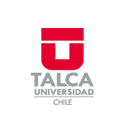
3 results
Search Results
Now showing 1 - 3 of 3
Item Evaluación del efecto de la conductividad eléctrica en variables agronómicas y nutricionales en Kale (Brassica oleracea var. sabellica) cultivado en sistema NFTAutores: Espinoza Veas, Claudio ExequielAutor Institucional: Universidad de TalcaProfesor Guía: Carrasco Silva , Gilda AstridJefe de Proyecto: Carrasco Silva, Gilda AstridProfesor Informante: Rebolledo González , Pabla AndreaLa agricultura se ha visto afectada en la actualidad por el aumento de zonas urbanas, las cuales provocan una disminución de los suelos agrícolas, Lo anterior ha promovido el desarrollo de nuevas alternativas productivas para el desarrollo de cultivo. una de ellas es el cultivo sin suelos, ya sea sistemas bajo sustratos inertes o sistemas hidropónicos. Por otra parte, la población en la actualidad opta por un consumo de alimentos más saludables nutricionalmente y benéficos para el día a día. Dentro de estos alimentos podemos encontrar el Kale o col rizada perteneciente a un grupo de alimentos llamados “superalimento” debido a su alto contenido de antioxidantes, fibra, Calcio vitamina C y K. De este cultivo se desconoce en la actualidad como interactúa el cultivo bajo un sistema distinto del suelo. El objetivo de esta investigación fue evaluar el efecto de la conductividad eléctrica en variables agronómicas y nutricionales. El experimento se realizó en un invernadero no calefaccionado, donde se establecieron tres tratamientos, cada uno de estos tratamientos consiste en una CE distinta, para así poder identificar como interactúa el cultivo con la CE de la solución nutritiva. Entre las variables estudiadas destaca su precocidad a cosecha, donde se obtuvo un tiempo de 32 días desde trasplante a cosecha, para los 3 tratamientos se obtuvo por planta una cantidad de 11 hojas en promedio, en cuanto a la altura y peso fresco existieron diferencias significativas donde los valores más altos obtenidos los obtuvo el tratamiento con una conductividad eléctrica de 1,6 dS/m Mediante el estudio realizado se pudo afirmar que la conductividad eléctrica si afecta a las variables agronómicas estudiadas, debido a que una CE baja no le entregará los nutrientes necesarios demandados por el cultivo, afectando directamente al crecimiento y desarrollo de la planta.Item Enhancing Leafy Greens' Production: Nutrient Film Technique Systems and Automation in Container-Based Vertical FarmingAutores: Carrasco, Gilda; Fuentes Peñailillo, Fernando; Manríquez, Paula; Rebolledo, Pabla; Vega, Ricardo; Gutter, Karen; Urrestarazu, MiguelUrban agriculture has emerged as a crucial strategy to address food security and sustainability challenges, particularly in densely populated areas. This study focused on enhancing leafy greens' production, specifically lettuce (Lactuca sativa L.) and arugula or rocket (Eruca sativa L.), using Nutrient Film Technique (NFT) systems and automation in container-based vertical farming. The study utilized a 20-foot shipping container retrofitted to create a thermally insulated and automated growth environment equipped with energy-efficient LED lighting and precise climate control systems. The results demonstrated significant improvements in crop yields, with the NFT systems achieving productivity up to 11 times higher than traditional methods in protected horticulture. These systems enabled continuous cultivation cycles, responding to the high market demand for fresh local produce. Moreover, the integration of low-cost sensors and automation technologies, each costing under USD 300, ensured that the environmental conditions were consistently optimal, highlighting this approach's economic feasibility and scalability. This low-cost framework aligns with industry standards for affordable technology, making it accessible for small- to medium-sized urban agriculture enterprises. This study underscores the potential of vertical farming as a sustainable solution for urban food production. It provides a model that can be replicated and scaled to meet the growing demand for healthy, locally grown vegetables.Item New Generation Sustainable Technologies for Soilless Vegetable ProductionAutores: Fuentes Peñailillo, Fernando; Gutter, Karen; Vega, Ricardo; Silva, Gilda CarrascoThis review article conducts an in-depth analysis of the role of next-generation technologies in soilless vegetable production, highlighting their groundbreaking potential to revolutionize yield, efficiency, and sustainability. These technologies, such as AI-driven monitoring systems and precision farming methods, offer unparalleled accuracy in monitoring critical variables such as nutrient concentrations and pH levels. However, the paper also addresses the multifaceted challenges that hinder the widespread adoption of these technologies. The high initial investment costs pose a significant barrier, particularly for small- and medium-scale farmers, thereby risking the creation of a technological divide in the industry. Additionally, the technical complexity of these systems demands specialized expertise, potentially exacerbating knowledge gaps among farmers. Other considerations are scrutinized, including data privacy concerns and potential job displacement due to automation. Regulatory challenges, such as international trade regulations and policy frameworks, are discussed, as they may need revision to accommodate these new technologies. The paper concludes by emphasizing that while these sustainable technologies offer transformative benefits, their potential for broad adoption is constrained by a complex interplay of financial, technical, regulatory, and social factors.

